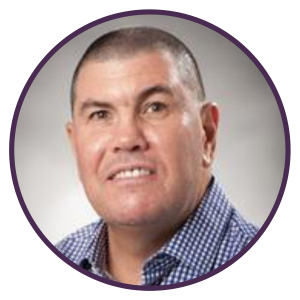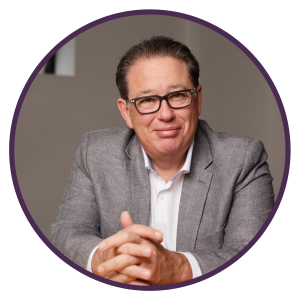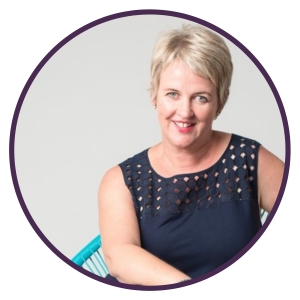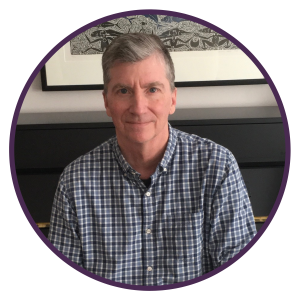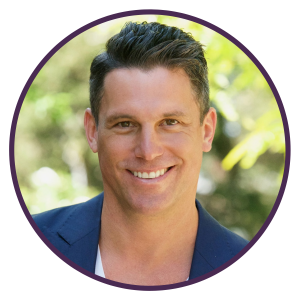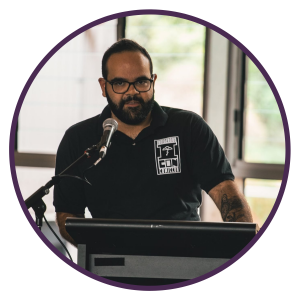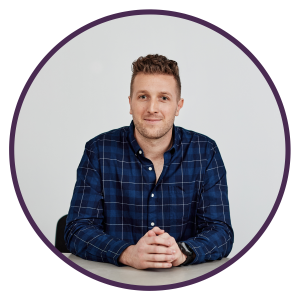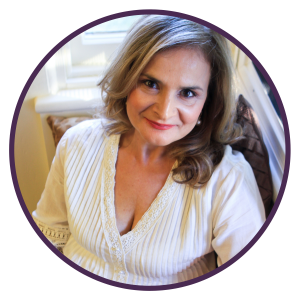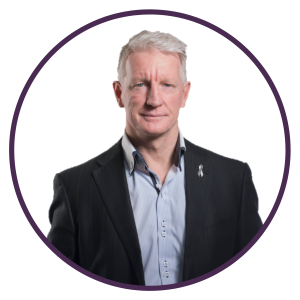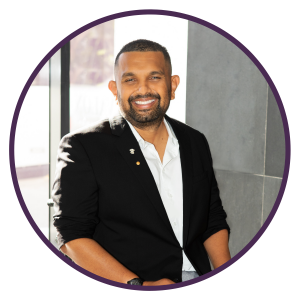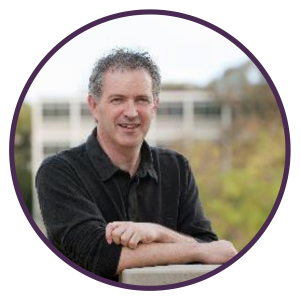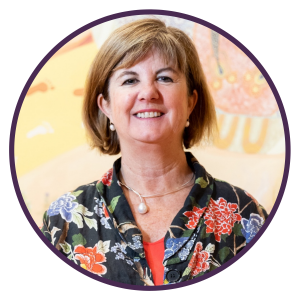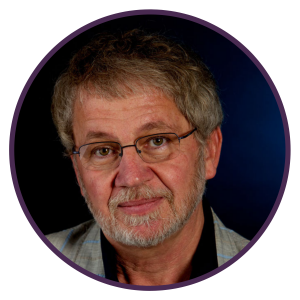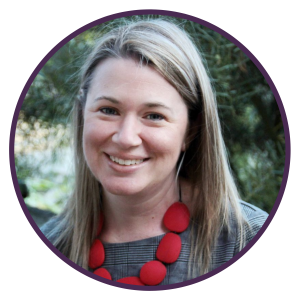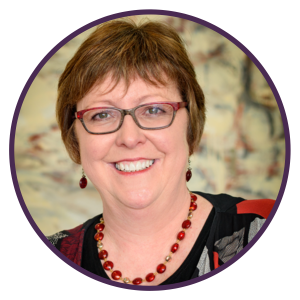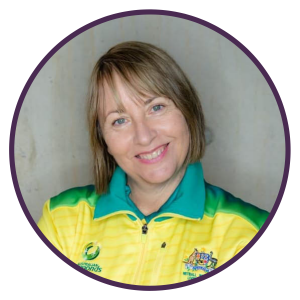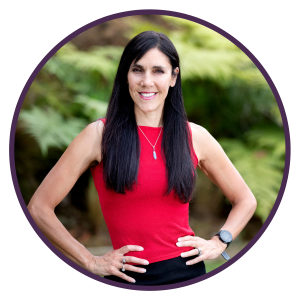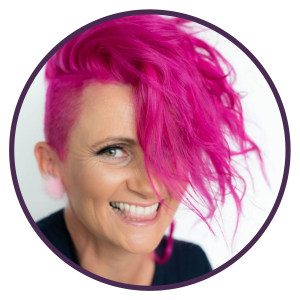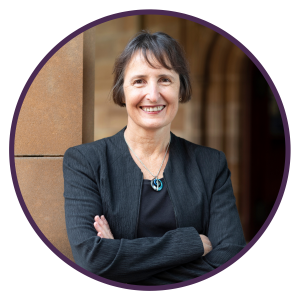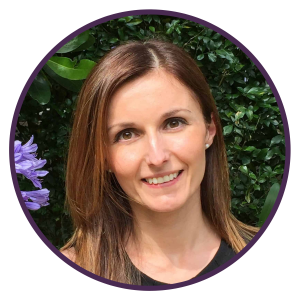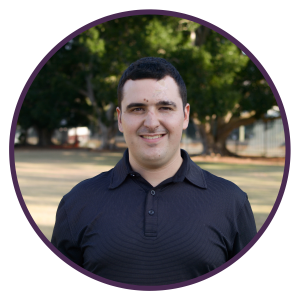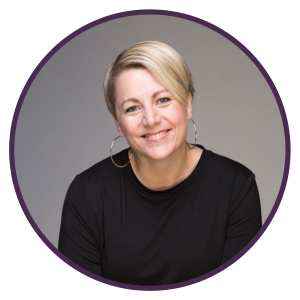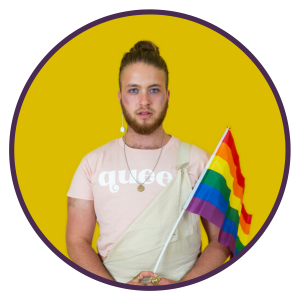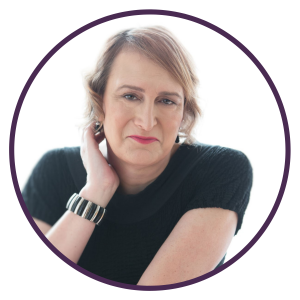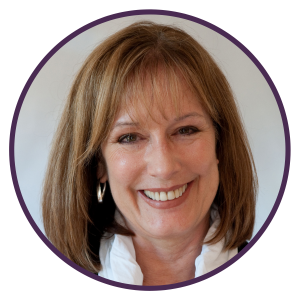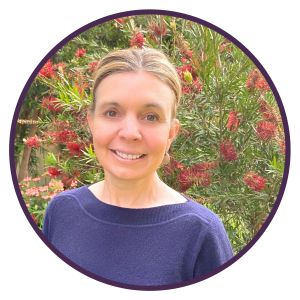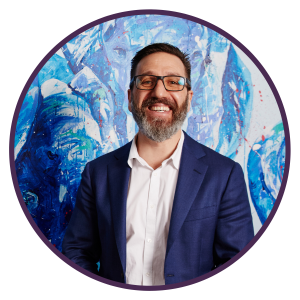Episode 4: Who is Daphne Kapetas?


Daphne Kapetas is the founder and CEO of LAJOIE SKIN, and has been working in the industry as a Chemist for thirty years. Daphne’s can-do attitude is grounded in belief in herself with a large sense of humour.
She has competed in “Tough Mudder”, is learning to pole dance and when we met her, was learning how to skin the cat which is an acrobatic term we’ll let her explain.
Having grown up in a Greek family and lost her father when she was studying her HSC, Daphne learned some great techniques to get her through tough times. We know you’ll enjoy hearing what she has to say as much as we enjoyed talking with her.
You can connect with Daphne on her social media directly below:
Jump to: Episode Transcript | Show Notes | Other Guests | Gallery
Follow us now on your podcast app!
Reframe of Mind contains discussion around mental health that may be disturbing to some listeners. If you are concerned about yourself or someone you know, please seek professional individual advice.
Some of the main crisis lines in Australia are listed on our Mental Health Crisis Resources page, including those that operate 24/7 like Beyond Blue and Lifeline.
Guests this episode:

Daphne Kapetas
CEO & Founder, LAJOIE SKIN
Gallery
Jump to: Episode Transcript | Show Notes | Other Guests | Top of Page
Show Notes:
Here’s some extra things you might not know about Daphne, as well as some of the things they mentioned during the episode.
Check out Daphne’s website:
You can also follow her on social media:
Some things Daphne mentioned you might be curious about:
7 Habits For Highly Effective People
Feel The Fear And Do It Anyway
Meanwhile, Calmmé anti-chafe and soothing cream was awarded Amazon Choice product this year in the US, which is sensational.
Daphne was also included in a Huffpost article:
What it’s like to be a beauty influencer over that age of 45.
A note from Daphne:
What did I learn and gain from this level of adversity at such a young age? Resilience, determination and gratitude.
- Resilience to know and accept that life is hard, it is hard for all of us, although some get it harder than others.
- Determination to ensure that I am comfortable with being uncomfortable and as a direct response, my neural pathways change and I get rewarded with a surge of happy hormones and self confidence.
- Gratitude to know that life may end in any second and that I need to live each day as if it were my last. I am grateful for my health and for those authentic relationships that I work hard to maintain.
Resilience, determination and gratitude for me are the three key elements that are required for one to reframe of mind.
Jump to: Episode Transcript | Other Guests | Gallery | Top of Page
Transcript
Andy
We acknowledge the Yuggera and Kaurna nations as traditional custodians of the land on which we work, live and learn and their continuing connection with the land, waters and community. We pay our respects to them and their elders past and present
Louise
all content related to this programme is for general informational purposes only, and contains stories and discussions around mental health that may be disturbing to some listeners. If you’re concerned about yourself or someone you know, please seek professional individual advice and support. More details are contained in our show notes.
Andy
Last time on Reframe Of Mind we explored depression, having taken inspiration from 2021, Queensland Australian of the Year Dinesh Palipana,
Dinesh Palipana
I’ve had the benefit of being able to compare both experiences. Yeah, I can safely say that depression is far more debilitating than spinal cord injury has been
Louise
something else that was prominent in Dinesh’s story was his decision to back himself to become a doctor, instead of a lawyer after having become quadriplegic due to a car accident.
Andy
He knew from the core of his soul, even in the face of people encouraging him to take another path that being a doctor is what he really wanted.
Louise
This was his truth. And he persisted. I’m Louise Poole,
Andy
and I’m Andy Le Roy, and this is Reframe Of Mind.
Louise
The series that cuts through the platitudes and gets to the core of living authentically challenging our assumptions and improving mental health with the guidance of good science philosophy and learning from other people’s lived experiences. Someone else we’ve met who learned at a young age to back herself and speak her truth is CEO and founder at Lajoie Skin PTY Ltd, Daphne Kapetas
Andy
Daphne enjoys taking up things purely for the sake of enjoying a hobby. When we first spoke to her one of her hobbies was learning how to manoeuvre acrobatic rings in mid-air.
Louise
Daphne’s father died when she was studying for her HSC. She’s a big supporter of reframing to improve life. And as a scientist has explored evidence of it working in case studies and in her own life
Andy
Daphne’s a businesswoman with heart, which she puts at the centre of everything she does, she finds the joy in life shares her profits and cares for the community
Louise
as we’re both sitting here trying to shape our own “What Now” empire, Daphne was like a tonic to soothe our wounded and ambitious souls.
Daphne Kapetas
I want people to get the most out of life because I realised how fragile life is like I know how fragile life is,
Andy
you’ve taken up some interesting hobbies over the years, what’s the latest one that you’ve taken up?
Daphne Kapetas
So the latest one is this new gym that’s opened up and we’re doing rings, like we’re doing some acrobatic ring, so I’m trying to get you know… do… my objective is to try and skin the cat, having so much fun that I think I spend one hour giggling all the way through it, which disrupts the rest of the class, but then they get their surge of happy hormones too, looking at me, and my several attempts, which I’ve actually got on my story today. And it’s already had so many people laughing, thinking, but you know what, I didn’t give up. And in the end, I got it.
Louise
What happens when you skin the cat? Do you go through a ring?
Daphne Kapetas
So you go through the ring… so you’re holding… So number one, it ‘s not you wouldn’t be able to
Louise
There’s no cats involved?
Daphne Kapetas
No, there’s no cats involved. There’s no cruelty towards animals. We love all living creatures. And I this is basically you hold the rings, and you attempt to go upside down. But you do attempt to do a little twirl around. So I’ve managed to be able to do the backward roll. But I can’t do the forward roll. I mean, basically, every year I give myself, and I’ve done this since I can remember since you know my early 20s, After I finished my first degree, and I found you know, that I needed to be challenged, I would set myself goals. And I’d have academic goals that I wanted to achieve. And I’d have extracurricular activities that I wanted to achieve. And I made sure that I would meet them. So I would check myself like a marketeer does every quarter, how am I tracking? So in my early 20s, I jumped out of a plane because I did have a fear of heights. And I had just finished reading this fabulous book, which I adore called feel the fear and do it anyway. So it’s okay to feel the fear and to acknowledge that you have a fear, or acknowledge that you’re feeling a certain amount of anxiety about something. And then I decided to jump out of a plane.
Andy
I don’t think I could go that far, myself
Daphne Kapetas
Well, I’m sure you could if you wanted to… had another chemist who I was working with at the time. And he would go down every weekend down to Picton and do that. And so I thought you know what, why not? Let’s go let’s go and do this. But I was also lucky that I didn’t have anybody around me like to stop me from doing this type of thing. So I’ve you know, I had a mum who was very encouraging. She never told me that being a female or being a certain age. It was a problem. I wasn’t aware that like I suppose I was so focused on achieving my goals and getting the most out of of life that I don’t allow myself to be consumed by my environment. In terms of if I got in my industry, I never felt that I was less than a male. I never got paid less than a male. But I made sure that I was valued. Because I had two parents who were very much into believing in me. I didn’t feel that I couldn’t achieve.
Louise
So do you think that that is a belief that directly is come from the environment that you grew up in from?
Daphne Kapetas
I do, I do, I absolutely do it. So it wasn’t like, you know, my heritage is Greek. And my, you know, my mum was born in 1933. And my dad was born in 1936. But they were early adopters. They were people who didn’t… they didn’t say to me, you need to get married, you have to have kids, they didn’t have these preconceived ideas, or prejudices about other human beings. I never heard my parents ever speak negatively about anyone that went into gossip. So I do believe that my parents had a lot to do with my self belief.
Louise
Would you say that’s different from what was, I suppose the cultural norm for people?
Daphne Kapetas
Absolutely. But it wasn’t just the cultural norm. Because I was born, I was born and raised in the northern beaches of Sydney, where I was the only one of Greek background in a whole school. So it wasn’t until I went to university that I saw other people that looked like me. And at the time, I had eleven letters to my surname, which was Dimitriadis. And that was, you know, quite challenging for a lot of people of Anglo background to be able to pronounce, but the thing was, I didn’t was it wasn’t just cultural thing. I think it’s just in general, maybe we, as women, we see today, some of the situations that other women are facing in terms of the prejudices against gender. And I sit back and I reflect, and I think I don’t ever remember my parents ever saying to me that I couldn’t do it because I was go ever I like
Andy
that concept of looking back to you made the comment that your parents weren’t at all into gossip. And I know that, you know, gossip is something that’s quite prevalent in society in any workplace, you find gossip very easily. It sounds to me like that is actually obviously something that drove you or actually contributed to the positive way you see yourself and put yourself out there?
Daphne Kapetas
Absolutely. Because I never compared they never said to me “oh look at what so-and-so is doing” and “why aren’t you doing that”? They never did that. They never drew comparisons against whatever anybody else was doing. We never read magazines, like “oh look at the cellulite on that woman” or “so-and-so just did…” Like, it wasn’t a conversation that we had. It was make sure that you do the right thing by the people and the living creatures around you, respect the living creatures and be charitable. So without even knowing it. As from a very young age, we were always s taught to be able to as people that were privileged, my parents saw themselves as as privileged, you know, living in Australia we’re privileged. And so consequently, they believed that it was our duty to protect the vulnerable that to meant like as an if you take take a look at the scientific research behind that, when I reflect back now, with my science brain, and with all the research, every time you do something charitable, and you help someone else, altruistically without a ulterior motive, you are actually in fact, helping yourself. It’s a win win. You actually they’ve done research on this. And they found that when you put people into a soup kitchen, and they test, they take swabs out of their saliva, and they test for cortisol, the stress hormone, and those tests for serotonin, the happy hormone, they find that after you’ve spent some time in a soup kitchen, they found that your cortisol, your stress hormone drops in your happy hormone increases. So I think holistically as a family because their mindset was focused on making sure that you’ve got your home in order first, before you start pointing the finger at other people.
Louise
I love that they had that attitude.
Daphne Kapetas
So do I, I love that I
Louise
like, when we’re setting the picture. What era is this?
Daphne Kapetas
Well, this is I was born in 1966. So it was the 70s so when there was you know quite a bit of racism on the northern beaches of Manly bearing in mind, you know, black hair 11 letters to my surname. One thing I thought about my parents is that when I’d come home and I had felt really like bullied badly, they never ever blamed anyone their attitude was “Daphne they don’t know you, when they get to know you. They will love you. They’re just coming from a position of ignorance and fear but once they get to know you, they will love you.” So I never retaliated. Some people might think that’s silly of me. And I reflect back now.
Andy
I mean, how hard was that for you, though, to actually be in receipt of what you were receiving, without fighting back?
Daphne Kapetas
oh, it was really well, it was like it’s I don’t know if it’s a personality thing or if the way that it’s the way I was trained. I didn’t fight back. And I’m a one one thing which you know. Okay, so my father died in the middle of my HSC end of year 11. He left a mother that was quite ill, and she She wasn’t allowed to go to school where she lived in Greece because my grandmother had 17 births. She had her last child at 55. So my mum being the eldest female wasn’t allowed to go to school because she had to look after all the siblings. Hence why my parents believe that education is power. Education is a power. So one thing that they did reiterate was as a female, you find freedom, especially when you are educated. That’s where you get your power through the love of learning. So reflecting on that when he passed away, which was quite dark at the end of year 11, and back then we didn’t have provisions we didn’t have, you know what we have today. I remember sitting on the bus at Manly where the Manly beach is, and going toward Seaforth where my family home was, and one of the boys from the opposite schools, middle schools came up to me and started chanting Daphne, how’s your father, how’s your father, Daph, how’s your father? He did it for 45 minutes, I sat there and I did nothing. I just looked at him. And I breathed because breathing is full on empowering. I lowered my breathing, visualised that I was on a dance floor. I visualised my movements, because I was performing. He was bullying me and taunting me. But you know what, in my head, I was dancing on stage. I had the audience clapping, I would have sweat pouring down my face from the amount of dancing I did. By the time we got to Seaforth, I got off the bus went into the home, closed the door, and that’s where I cried. Yeah, when I told that to my mum, she said to me, forgive him, forgive him. He doesn’t know what he’s doing. The day will come that he’ll regret that, be the bigger person and don’t retaliate. A lot of people think that’s crazy. How did you do that? But I did, because I visualised that I was somewhere else. Other times I’ve visualised, I had a raincoat on. And when people would spew out their toxins to me, I felt that the the, the raincoat was protecting me, I was using the power of visualisation, and then once they stopped, I would take off my raincoat and wash it out. How many years on 10, 15 years on from there, the fact that I did not retaliate made me super successful in business, it meant that when I was working for Bayer, and there was an issue happening anywhere, they would say, Daphne, you need to go into China, and you need to sort this out, Daphne you need to go to Melbourne tomorrow and sort this situation out ’cause I didn’t take it personally. So it might have been pretty difficult at that point in time to do that. But it’s taught me a lot in terms of resilience. I don’t need to react, but I have the control. And that’s why I’m saying to you, that was like, you know, I was 16 at the time. That was 1982. And you can imagine how gutted I was at that time, but I didn’t allow him to see my pain. And I remember mum saying to me, don’t ever let them see your pain, do not let them see your pain. They may take joy out of that, but do not retaliate. And that’s the reason why I’ve said before that I do the things that I do, because I’m wearing my raincoat and if you laugh at me, and if you think I’m an idiot, I really don’t care, because I’m not hurting you unless it’s if I’m hurting you if I’m doing something where I’m being toxic to you. That’s a different story. But if I’m not hurting you, then why should your opinion of me count,
Louise
it might seem to an outsider that hasn’t heard the whole story that by not acting, you’re not empowered, because you’re you’re ignoring it, but by visualising and placing the raincoat on, it’s a very powerful, empowering act that you’re doing because you’re placing yourself first and setting up those boundaries. To say that no one’s opinion, besides your own is what matters. Even when they’re standing they’e spewing at you awful things on a bus ride,
Daphne Kapetas
I find that empowering. And again, I’m not going to allow anybody to make me hate them. Yeah. And my mum would say that to me to this ancient Greek sayings that say, when somebody hates you, or they love you, what you don’t want is for them to like, feel sorry for you. Right?
Louise
Okay. Because whether someone hates you’re not it’s really not your it’s not our business.
Daphne Kapetas
And what they say about me is also none of my business. Yeah, okay. At the end of the day, if you don’t like me, seriously, switch off, don’t listen, okay? Walk away. Don’t say hello to me. But I’m not going to allow you to make me feel negative towards you. It doesn’t matter what you do to me, I will not allow myself to feel because I don’t want to feel… I just want joy. I want every morning to wake up and feel happy. And it doesn’t mean to say that every day I feel happy, there are days that I don’t feel happy. And I’m okay with that. And if you ask me, I’ll tell you the truth. I’m not feeling very happy today. But then I have a toolbox of things that I go to when I’m not feeling happy. A toolbox, I have a range of things that I do to pick myself up.
Andy
Yeah, I love that you’ve actually empowered yourself with with those things that have happened to you and also not given power to those people. And you’ve turned that into success for yourself. I want to come back to what you were saying about your education as well because you mentioned that you did your first degree which kind of hints to me that you might have done another one.
Daphne Kapetas
Well, I have, so my first degree is… so I wanted to be a fashion designer or a dancer or a singer I wanted to leave leaving you 10 I wasn’t very good at maths back then they believed in fixed mind state that I was a creative and I could draw but my maths was really not okay. But then in year 11, year 12, I had studied chemistry, biology and textiles and designs because of course, I had done work experience with Carla Zampatti and that’s what I wanted to do. My mum was a designer, I want to be a designer, but my love of chemistry and like, and my curious mind meant that in the end, I did a degree Pure and Applied Chemistry degree at UTS. Now at the time when I walked in there because bearing in mind, you know, I’m a dancer I want to perform by love fashion, I’d walk in there with red suits, red nail polish and black hair. And they used to call me The Nanny of course. Okay, but like the nanny, not you know, the nanny, did you? Okay, okay, which is fine. I didn’t care, right. But the lecturers were like, you know, you don’t look like a scientist, you don’t conduct yourself like a scientist. You can’t wear… you need to wear safety shoes. You’re wearing high heels. Okay, so you know what, they won the safety shoe debate, yes they did, I ended up wearing safety shoes in the labs. But I didn’t take off my flamboyant red suits. In the end, I would give them my assignments. And they’d say, Oh, you know, who helped you do that? Because they assumed that being the way I was that I didn’t have brains, you see these prejudices? It’s silly. Yeah. Like I didn’t, I didn’t fit in the scientific norm. It’s just silly. It’s a limit. It’s limiting on their part, not on mine. But in the end. And I remember once there was a subject called reaction kinetics, which is physics and chemistry. And one of the guys next to me said, Ah, you know, you’ll never pass this one. It’s a 15% pass rate. Now that is enough to drive me mad. Okay. Tell me that I can’t do something, and then I go, thank you for that. That’s exactly what I needed. I needed you to tell me that. I can’t do that. Now. Watch me. Now, I never got back to the people. I never go back to these people to say, Gee, thanks for that. Because of you, I got 95% And I remember the lecturer walking in saying Daphne Dimitriadis reaction kinetics stand up 95% I blitzed it. I couldn’t believe it. But I never told anybody that behind the scenes my brain was haemorrhaging. Okay. But it’s like any performer, no performer tells you how hard the rehearsals were. When you go and watch somebody perform you’re mesmerised by what they are doing, how they’re entertaining you how they’re taking into a different place. It’s exactly the same thing. They don’t sit back telling you just how hard this was to make this performance look as great as but it was the same as this. I didn’t tell anybody. So when I finished from UTS, and my science degree, the first year I worked as a chemist for Avon, which was quite a big skincare beauty company at that time. And then after a year, I was offered a position lecturing chemistry at university to the engineers. And again, I didn’t change I didn’t … they actually also made me student representative. And I never changed to fit into the norm of what a scientist is supposed to look like. And then a few years later, I did buying for Avon and then I was becoming product manager and marketing. They started paying for my master of Business and Marketing. So I ended up doing a Master of Business in marketing in my late 20s. And then later on when I got married and had kids at 43 When my daughter was at kindy. My son was at preschool I went to Adelaide, the University of Adelaide and did a graduate certificate in Sustainability.
Andy
That’s incredible. I’m really interested in that that phase as well because I can already hear so many things that people would say to themselves to put themselves off I’ve got “mum brain”, I’ve been out of this for so long… I’m in my 40s… What are the things that you were telling yourself as you were starting this new
Daphne Kapetas
well again, because so what I did was so when I finished my master’s, I ended up working in the fragrance industry so a division of Roche, a division of Bayer where they create the fragrances that go into your product so the from your fine fragrance like your Prada your Valentino. They don’t make the fragrance, we do. So I would travel around the world creating these beautiful fragrances from you know your aftershave to roll-on deodorant in Paris, or soap bars in Jakarta, Johnson & Johnson baby shampoo in China… So every you know, a few days I would be travelling, it was a fantastic job. So at 35 I get married, which was something that I hadn’t planned for my parents never told me that, you know, I needed to get married. I was having a great career, but you know, the right person came along and I do believe that the right person did come along. After three months he proposed. All done, right? So 37-38, 38-39 I had two kids and I was bored. My husband encouraged me he said to me, You know what, how about you go and do something environmental. So I thought, You know what, that’s a great idea. So at the time, the University of Adelaide came up with this course it was the first course of its kind in the southern hemisphere, and I enrolled. Now I’ve gone down there now, bearing in mind, I’m 43. Now these are university students who are what are they? 18, 19 20? When I first walked in there, the lecturer was amazing. She was a science lawyer, and she was 30. Did I feel a bit intimidated? I’m going to have to think that really carefully though I probably did, I don’t believe in “mother’s brains”. I don’t believe in that at all. And I think that’s probably my science training that thinks that’s just ridiculous. It’s I’m not telling myself that negativity, because the brain doesn’t know the difference between reality and what you tell it. So I’m telling my brain, it can do anything. And my brain goes, sure you know what Daph, you know, best. And then when the brain says, You know what she knows best, it starts producing different hormones. So if I am going to do a presentation, and I know I’m 43, and I look so much older than an 18 year old, I don’t focus on the way I’m looking to them, I focus on learning my content. So I’m standing up there now in front of all these young students. And yes, I’m a mum, and I have a mother who’s dementing, she had just been this was just before her diagnosis of frontal temporal dysfunction of the brain. So it wasn’t great time for me, but I was focused on getting my content, right focused on me, focus on your own stroke. So when you are rowing, you focus on your own stroke. And that’s how you propel forward. When you’re on a bike and you’re cycling, you have to focus on where you’re going. Because if you don’t, you fall off. So like all the different activities that I’ve done, where as a dancer, when you’re performing in a group, you have to focus on your routine, I can’t focus on what someone else is doing. I can see you from a peripheral vision peripheral, but I’m not going to look at you front time. So I stood up in front of everybody a lot older than all of them. And I focused on my content, my personality came out, and I did well. So you know, I just I think it’s a matter of saying, I’ve only got one life, I’m going to make sure that I live it each day. And like I said, my, my goal every day is to be happy. And my happiness comes from setting myself goals and wanting to learn something new. I mean, I’m basically addicted to dopamine. Dopamine is the hormone, which is produced in your brain, when you try something new. And you get excited over it. You know, like the rings that I’m doing now?
Andy
What’s going through your mind when you’re learning the rings?
Daphne Kapetas
Oh, I just think it’s funny. I just… let me get… because again, but the thing is, I’m not competitive. So because I’m not competitive, like I’m not competing against you. I don’t care. Like whether you come first or you come second or you’ve got a trophy. I’m trying to beat my personal best. So for me when I’m doing the rings, I’m not absorbed in what the others are doing or how they’re looking at me all. I’m into my own body. There’s some that might sound a bit I don’t know, vain. Does it sound vain? Does it sound self centred? It’s I’m trying to live the best me the best version of me.
Andy
I think that comes back to the things you’ll hear often when you take a yoga class. Or if you’re doing a Buddhist meditation, they always say don’t compare yourself to other people because everyone’s on their own journey.
Daphne Kapetas
That’s exactly right. And I think goes back to what we talked about before. My parents did not tell me oh what so-and-so is doing or what so-and-so are going to say about you. Or you know, do I have an opinion on what Meghan Markel and by royal family, I don’t have an opinion, I don’t have an opinion on what some celebrity is doing. I don’t have an opinion on what you’re doing. As long as you’re not affecting my life. Why should I care? Whether you like sushi or not, as long as I don’t bother you, and my behaviours aren’t hurting you in any way, in my world of nurturing, inspiring to you, then why should I involve myself in what somebody else is doing? And so I think that there is the critical point, the fact that if we just focus on what we need to do to keep happy, because then you create a domino effect. So you know, I read this fantastic book in 1995, called Seven Habits of Highly Effective People. Yeah, at that time, I was studying my masters, I was going for a job at Roche. So I’ve read it again, as a mum, there’s a version of it for kids, Seven Habits of Happy Kids, their habits are the same. But basically, it’s a matter of me trying to get the best version of me. So one of the rules in the book was one of the habits was begin with the end in mind, Alpha and Omega, which is the first letter of the Greek alphabet. And the last one, what do you want to achieve at the end of a day? What do you want to achieve at a at the end of your quarter? Whether it be in your professional life, or whether it be your social life? What do you want said on your tombstone? This was 1995. And at that time, it was clear to me in my late 20s, that I want on my tombstone to say Daphne inspired people that I wanted people to every time they came across my path that they felt joy within themselves. So I have to live like that every day, if that’s what I want said on my tombstone. It’s got nothing to do with how many degrees I’ve got or how much money I earn, it’s got to do with how did I make you feel. And I believe that if I am to achieve that goal, then you have to be happy within you, Andy, and you have to be happy within you, Louise, because then it creates a domino effect. And scientists have proved that anyway, that our environment, the ancient Greeks also say “tell me with who you hang around with, and I’ll tell you what you are.” So if you’re hanging around with people that are toxic, it’ll rub off. I don’t enter conversations when people gossip, for example, you know, I won’t do it. You will not drag me into it. If I see things on social media that I don’t like, if I have nothing good to say, I will say nothing I won’t go into well, you know what, that’s not true, those stretch-mark don’t work. It’s BS.
Louise
It’s an amazing ability that we have to just keep on scrolling. That’s it. We don’t have to comment on everything.
Daphne Kapetas
No, we don’t have to. And that doesn’t mean to say that I want like, if you asked me, I will. Yeah, you know, if you asked me, I will give you my opinion. But I’m not going to dive into your feed and tell you that what you’re doing is wrong instead of my business.
Louise
Because that book, The Seven Habits of Highly Effective People by Stephen Covey, I learned that the one or two big things that I always took away from that and remembered was the relationship bank, which is that you, you know, basically invest points with people and you keep building this positive relationship, and so much as you never withdraw more points than what you’ve earned, then people will almost always be favourable to you.
Daphne Kapetas
Yeah, it’s I think it’s if I had to, and that’s why I’m saying it as in from 1995. Till now 2021. If I if I had to make one book compulsory, it would have to be that book. Oh, well, I love it. I think it’s fantastic. And it’s so easy to you know, begin with the end in mind, create a win win. You know, it’s not a matter of remembering, you know, being a buyer and negotiating with suppliers. And it wasn’t, you know, I’m big, powerful Avon, and you’re like absolutely nothing. So you’re going to do what I say, it doesn’t win, because at one stage, that supplier is going to go, you’re just too hard. And I’m not going to work with you. So whether it been a business relationship, I always try to find a win win, so that people so everybody feels that they’re good. And it just means that we need to compromise. You know compromise is a beautiful thing. It doesn’t mean that but it depends on what it is right? So I won’t compromise my values. But when it comes to trying to meet in the middle, I don’t think that’s such a difficult thing to do. even though some people find it difficult to do. I think it’s important to respect the other person’s needs, too.
Louise
So what would be your definition of success, because it’s not about money. And it’s not about accolades.
Daphne Kapetas
But well, I know it’s not about money and accolades, because my father had, you know, built quite a big home, waterfront, on the northern beaches in Seaforth. And he died two weeks after. And I can tell you, it made us extremely unhappy. So I new at that age, that… and it attracted too much attention, it attract a lot of negative attention. And I would shy away from that it would really I actually used to find it quite embarrassing. For me, success is waking up in the morning and feeling happy. So basic. See, that’s it happy. And you know, when I say that to people, they a lot of people have criticised me over that one and said, Well, you know, aren’t you ambitious? Yeah, I am ambitious. Absolutely. I’m very ambitious, but I want to be happy. So I will never put myself in a position where I will not where I will, I will not feel happiness. That’s incredibly, incredibly important to me. And I don’t think And money doesn’t do it. And, of course, we need a certain amount of money to be able to eat to be able to travel when we can again, to be able to have a home, of course we need a certain amount of money. But there’s but then we don’t I don’t need excess, I don’t need to be wearing the designer bag and the designer clothes.
Andy
It really sounds like people are conflating the idea of success or ambition with competition.
Daphne Kapetas
That’s, that’s what I think, too. And again, it’s because they’re looking at the Joneses. And the thing is when you do that, and I decided not like I said we’re not. And where it actually was really obvious to me was when I became mum, when I became a mum, I was in my late 30s. And I had, you know, gone to mother’s group, and I found that quite confronting more confronting than standing up in front of students at the University of Adelaide at 43.
Andy
In what way?
Daphne Kapetas
Well, because that was so competitive, and my child’s just had its first solids my child just did its first whatever, you know, I just got these diamond earrings for the birth of my child. So it was just the whole thing, the whole conversation I found competitive, and it wasn’t nurturing for me, and it wasn’t stimulating me. And like I said, you know, being like, and the thing is, if I’m sitting… if I’m excited about the next door neighbor’s brand new Merc, that Merc in a year’s time, will end up being one year old. And then basically the benchmark keeps on changing when you use other people as your benchmark. But if you use yourself as the benchmark and the goalpost, you’re in control,
Louise
so what’s in that toolbox, because it’s not an easy thing to keep shifting the focus back around to how you feel when there’s so many things out there trying to vie for your attention,
Daphne Kapetas
like so in my toolbox I have so this is my toolbox. So we’re talking about the toolbox of my happiness.
Louise Poole
Yes
Daphne Kapetas
Okay. So my my number one thing is for me to have nurturing true relationships and those relationships have to be based on my values, another great book that articulate this to me was I mean I had had naturally done this but it wasn’t until I read this book that I thought yeah, I’ve been doing this “The Subtle Art Of Not Giving A F…”
Louise
I’ve read that one, too.
Daphne Kapetas
Okay. Okay. And the beauty about that one, well see how he talks about the values? So if I value you, Louise, but you value money. Yeah, that means when an opportunity arises you in our relationship will throw me under the bus over money.
Louise Poole
I’m sorry.
Daphne Kapetas
Okay. Let me start again, but I’m just saying but but if you Louise value relationships and I value relationship if you value my relationship and I value your relationship, then we’re okay. We can be buddies forever.
Andy
Can I just, Daphne, are you psychic, or is that a prophecy? Asking for a friend
Daphne Kapetas
No, I don’t believe in that, it’s funny, you know what? There’s another story. I’ve scared many of my bosses with my powers of visualisation. That’s another story. But I have it’s funny ’cause I still I used to visualise car spots all the time. I was a big nightclubber in my 20s and 30s, before I married a non dancer, and parent
Andy
I do that
Daphne Kapetas
Yeah, visualise Car spots. Yeah, and I’m perfect. Andy, always, I’m telling you, I will be so then what I think it was 34 that I thought I need to use these powers of visualisation to something more substantial.
Louise
I don’t know now why I’m not visualising car spots. Because that seems like a really good idea. I’m waiting for
Andy
Because I can drive into the city and I say to my partner, we’re gonna get a great spot. And if I let him get into my head too much and say no, don’t be stupid, just go here, then the spot doesn’t appear. But if I don’t actually talk about the car space, and I visualise it, and I go where I intend to go, there’s a car spot there.
Daphne Kapetas
That’s exactly what you said about your partner. Right? Okay, so if I’ve got somebody in the car, that’s negative, yeah. I go, listen, I have been visualising this car spot. And you know, in Sydney, they’re very rare. Yeah, yeah. All right. Clearly, I’m not finding a car spot there’s someone negative in here. I’ve got a non believer in my car,
Andy
get out! Go!
Daphne Kapetas
Get out of my car! You think I’m joking, I’ve done it. And I warn people to listen, if you interrupt my visualisation, like sneezing Don’t interrupt my sneezing. That’s another one. One of those things that triggers me it’s because you get so much joy when you sneeze. Right? And I remember there was one secretary years ago she could see that I was putting my nose up towards the light so I can encourage this sneeze. And she ran in and put a finger on my nose! Anyway…
Andy
What? That’s pretty intrusive!
Louise
Intrusive because it’s one eight of an orgasm.
Daphne Kapetas
That’s what I was gonna say! And I said to her, would you want me to come and interrupt your orgasm? Seriously? That’swhat I told her! I was so upset with that. Honestly, okay, especially to be able to do that in the middle of the day at work. What a bonus, anyway,
Andy
not even in break time,
Daphne Kapetas
break time! but she wouldn’t be stuck a finger underneath my nose. I’ll never forget that.
Louise
It’ll never happen again because of COVID. Don’t worry.
Daphne Kapetas
It’s terrible. You’re right, exactly. That was terrible. Anyway,
Andy
You’ve got to go to a separate room to do it, but anyway
Daphne Kapetas
that’s right, separate room. So with so with the car spots. So with the visualisation, there’s I know that sounds really like you know, [woo-woo noise].
Louise
Yeah we’re OK with that
Daphne Kapetas
Okay, that’s fine. But they’ve also… but the thing is it also from a from a brain perspective, it gives you time to relax, you see, so when you know that that car spots’s going to be there for you, you’re all nice and calm, which means you’re not rushing past a car, spot a car, a car that’s just about to leave. Do you say that the reasoning behind it so that so I do believe car spots work. And then of course at 34 I thought I start need to start using this visualisation for a partner. And that’s when I sat down and wrote down the three values that I needed in a partner. And I’ve visualised them, and then the following year, he appeared. He appeared, we were seeing at the opening ceremony of the Sydney Olympic Games, we were in a choir.
Andy
I’ve told Louise about that this technique that I use several times now called script writing, and it’s not writing movies, it’s actually writing out the future as if it’s already happened,
Daphne Kapetas
And I believe in that, too
Andy
It’s values based and I learned it from somebody years ago in a seminar that I did, and when I actually put my mind to it, 90% of the stuff will actually manifest
Daphne Kapetas
Absolutely, but I believe that I absolutely believe that can I say when I was studying my science degree, I was visualising standing in front of marketeers and, as a marketeer.
Louise
So from a scientific chemist point of view here, what’s the process that’s going on in the brain? Do you know… I’m certain you’ll know the answer here. So what’s happening is you visualise that is turning that kind of thought pattern that energy into a manifestation.
Daphne Kapetas
Yes. It doesn’t mean to say so. This is why I say it’s like again, you know, I’m going back to ancient Greek philosophies again. But there’s a Greek philosophy that basically says, you visualise it, but you have to do it too. You had to plan for it too, right? So it’s not just a matter of me visualising getting a science degree and not and then going out dancing on podiums and bar tops in the Cross, which I did do, I did do, but I also studied, right. So it’s not a matter of like not making the effort. It’s because when you, because the brain doesn’t know the difference between reality and what you tell it. So as a chemist, I knew that I wouldn’t be stuck in a lab because I’m an extrovert. But I had committed and this is one thing where my mother was quite strict with she’s like, you’ve committed to this degree, you have to finish it. So we’re very much into commitment, if you say you’re going to a party and you get a better offer, you still got to go to the party that your RSVP’d at, right. So commitment is your word, is it, your word is gold, so when I, so when you’re actually visualising something that like a dancer, so at night, when I’d go to sleep, I would visualise my arm moves and my costume. And I’d visualise because I always thought I was going to be a mermaid. And it wasn’t until I was 16. Then my mother said, You better give up on this dream. It’s not gonna happen.
Louise
It’s not too late, there’s still time, Daphne
Daphne Kapetas
But I loved, I just loved I like the idea of being a mermaid and a dolphin. They were my two… like, I just loved that, right. And still, even now, my daughter’s 17. She’s struggling to sleep. I’ll sit down with her. And I’ll go what colour is your mermaid tail? Let’s see, I’m putting mine with pink sequins and purple sequins, and maybe some red sequins and oh, where should we go to now? Let’s go to Hawaii, she said to me last week, she’s in year 12. Right? So now we are pretending that we are mermaids. And we’re going off to Hawaii. So all that visualisation does help reduce again, cortisol. And again, like I said, not all cortisol is bad, because you do need a bit of stress to be able to get moving. But it’s how much stress
Louise
cortisol is also the hormone that’s caused by like that, that fight and flight response, isn’t it?
Daphne Kapetas
Is it that yes, that’s it. Exactly. That’s it.
Louise
So the more in your life, you have the more corrtisol you have which is blocking that ability.
Daphne Kapetas
Okay. But it’s but it’s also depends on what the situation is a little bit. So what I was listening to the other day was that for example, procrastinators, which I’m not one of them. But procrastinators normally need to, they leave things to the last minute because they need their body to produce enough stress to motivate them into action. Do you see so you do need a bit of stress. So a little bit like you know, you know, that performance anxiety before you’re about to sing, before you do a presentation, you get a little bit of stress, too much stress where it becomes debilitating is a problem. Okay, that’s when you go back to your breathing to reduce your breathing, but a little bit of stress isn’t bad for you, because it gets the body into preparation for what’s coming ahead.
Louise
How can you physically tell when you’ve hit peak cortisol and you need to back it back?
Daphne Kapetas
Well, you would tell because cortisol, again, when I say to people, like when people talk about my, you know, my my cream and how it’s helping them with their eczema, even though it was designed for chafing, it wasn’t designed for eczema, and I sit back and I think okay for scientifically, I now understand why it’s helping you. It’s creating a soothing, long lasting barrier. But because it’s soothing for them, and they’re not itching, their brain now feels a sense of relief and calm, which then allows their skin to calm down too, do you see? So cortisol, too much cortisol is bad. And you can actually see through it up through through your skin, you know, eczema, acne, psoriasis, it’s not just one thing, one pill, one cream will not help one specific skin condition. It’s a holistic approach. It’s it’s not and that’s when it comes to so when you can tell that your stress is too much is where it’s debilitating when it’s keeping you up at night, when you’re not getting any sleep when you’re being agitated or irritated. When you’re depressed. When you feel that you can’t move. That’s when stress is too much. You can actually tell like, I know that when I’m beginning to feel a bit anxious, I normally feel it in my stomach. And then I go right, okay, lower your breathing. And you know, I’ll count to eight. And then I’ll slowly breathe out to try and reduce my heart rate. So we can all tell like if we’re mindful, we can tell when we’re when we’re feeling a bit anxious. And then we go to our toolbox. So for my toolbox is, you know, my daily exercise keeps my stress levels down. My meditation, dancing, singing, knitting, creative, so I will I’ve got a toolbox of things that I do that I know, right, this is my time now where I need to reduce my stress levels. And you know, and we will have to find the thing that works for them. Exercise has been scientifically proven to be sensational when it comes to reducing stress and producing happy hormones. And when you do what I do, which is every year I give myself, you know, 50 I did a spot did a Tough Mudder race. It was a 21 kilometre race. It was tough. I’m a dancer, I’m not a runner, but you know I prepared for that I planned for that. They trained me to be able to do that in the end that exhilarated me, yeah that happened, you know four or five years ago, but I still when I look at that photo, I pat myself on the back and think that’s pretty cool Daph pretty cool that you did that def and bearing in mind that was worse than uni. Andy, at 43 Because I was 50. And they were in their 20s
Andy
Ah, see, a lot of people would make that the thing that makes them not do it, not even consider it,
Daphne Kapetas
you see what, but they’re stopping themselves from living their best life. You know, like, as in, I suppose the day that I rocked up, I gotta say, I did feel anxious because I looked around and thought, What am I doing here, I’m everybody’s mother. And there was a guy on the stage. And he was trying to rev everybody up to get everybody excited. And he picked me and now they’re playing all the music that I spend all my life dancing to on podiums at DCM. And he picked me out of the crowd. But he didn’t realise that I used to teach belly dancing. And belly dancing is my number one passion. So of course, here I am on stage now and I’m having a great old time dancing with him. They’re all like clapping away and having a great time. But for me, that reduced my my stress straightaway, I defaulted back to what I love, and that’s to dance. And when I dance, it takes me into another zone. And then I forget what I’m doing. And it goes back to the Louise Hay book that I said before, which is Feel The Fear And Do It Anyway. You know, you don’t take a look at your life and say, Okay, if I don’t achieve by the time I’m 25 I mean, that is such a waste of the next 85, 90 years. If the average age is 86-87 before we pass, then you can’t expect to achieve everything in the first 25 years of your life. And everything else is boring.
Andy
That’d be very busy, wouldn’t it
Daphne Kapetas
I say, Well, it’d be very busy, but you wouldn’t take a lot of pleasure out of it. I can’t say to you. Yeah, you know, I’m a mum and I have teenagers and that’s all my life is about. No, it’s not, yes I’m a mum, but I’m more than just a Mum, I’m more than just someone that’s turning 55 I’m someone who gets excited about little things like you know, when I go past Mr. Lincoln roses, and Adelaide got the most beautiful rose gardens, I will stop and take pleasure in that I will not go past Jasmine, Gardenia’s or Mr. Lincoln’s and not stop. And I don’t care who I’m having a conversation with, I will stop and take pleasure in the beautiful scent of a traditional English garden. And so if I can take joy out of the simple things or watching the birds do their thing butterflies and bees, I love bees with a passion as well. Gosh, I’m passionate about so many things, aren’t I. But that keeps me that keeps me happy. You see. And if that means that people think I’m silly, I don’t care.
Andy
So I’m interested to know if you have say a magic recipe for succeeding at something new. So from what I’m getting from you: pick something that you actually want to do. Be happy doing it. Don’t compare yourself to others.
Daphne Kapetas
That’s it.
Andy
It’s as simple as that?
Daphne Kapetas
It’s as simple as that is very simple. Pick something that you want to do, right? So if it’s like I always want to play piano, well go and learn it. I always wanted to and the thing is brain neuroplasticity growth mindset, there’s science behind the brain the past 10 years specifically, has shown that the brain is like Play Doh, it responds to what you tell it. So basically, if you tell yourself, you can’t do it, the brain goes Oh well, he can’t do it. He can’t do it. But if you say to yourself, I’m just about to a presentation and I’m visualising my posture now. I don’t I’m not crouched, I’m proud. I’ve visualised how my presentation is going to go. I’m watching my audience. They’re excited about what I’m saying. And I’m receiving that feedback if you visualise that before it happens, and of course you’ve rehearsed it and planned it and practised and made sure and recorded yourself and made sure it was perfect. Once you get on that stage, and the brain thinks it’s already done it. So you go up and you start. It’s the first couple of minutes of a presentation that’s freaky, or the first couple of minutes before an obstacle course that you think okay, now I’m a bit freaked out. What am I doing here? I’m sitting here running in mud. And the guy that’s on my back has just you know, wee’d himself in the river. Right? True story. “JB Did you just wee on me?” “Oh not on you right now, Daph” It’s true story. Not on you right now. Daph. Seriously, mate? Seriously? I’m older than your mother. Seriously? It’s true story. He gets no I did it before because the team that I got joined wanted to win. I wanted a story. Yes. I wanted to win. I wanted the adventure. But JB never told me that he goes oh listen… I said to him, Oh listen… because that’s another thing, right, I’ll rock up… that’s another thing, right, remember I said to you, you got to believe being in an environment where people believe in you? So I had joined this new gym. I had turned 50 He comes up to me. He says we’re doing a Tough Mudder team. Would you like to join? I say to him, I’m a dancer. I don’t run he goes no, no. I can see how strong you are. Because I’ve done weight training for 31 years right? How about you just join my team you’re funny and you’re focused. Funny and focus doesn’t get you through a 21 kilometre obstacle course race by the way. Okay. So then I take a look at the other team and I’ve gone What am I doing here? This so competitive. Oh my gosh, oh, there was a time where I felt overwhelmed thinking, what am I doing with all these psycho competitive human beings? This guy trains the Sea Eagles, the Manly Sea Eagles, what’s he doing with me? Right? But he kept on, he kept on reminding me. You’re funny and you’re focused, you’re fine, you’re focused. And he had a programme and he and I was trained, I was trained to it. So on the day, we won. We were the first team from at the time I was part of Virgin Active that won. And every time we ran past a drink break or a meal break, my team went, ran past each one. I’m like, Hey, guys, what about a little bit of a break? Hey, guys, I’m not here to win… “oh, we are.” Why didn’t you tell me that four months ago? You tell me that today. Now. I’m stuck in here. And do you know what?
Andy
Would you have done it if you knew that they were being competitive?
Daphne Kapetas
No, nope, no way. No way. Because because they want to win. I don’t want to let them down. I’m the one that when they were doing netball at school, and we’re picking teams, it’d be like, OK we’re in teams now teams now. Okay, right. Okay, goal keeper, you’re blah blah, oh listen, I had Daphne last week. Okay. Right. I don’t want Daphne again this week because you know, hand-eye coordination. So I remember that feeling as a student thinking, Well, you know what, I’m really not competitive. So if I knew they were that fiercely competitive, I wouldn’t have done it with them. So it is picking the right environment. But where I was liking was that JB saw something in me that I couldn’t see. And he didn’t let on. Like, he didn’t tell me that he was there to win. And at the time, I didn’t realise that he was, you know, one of the coaches to the Many Sea Eagle, did I? But since then we’ve done Spartan Races together, we’ve done Roar Challenge. Every year, he sets up, you know, different things for us to do. And I’m still training with him.
Andy
Are they still competitive in that training that you do?
Daphne Kapetas
Oh, they’ll never change they will never change they are competitive. But the thing is, we’re friends now we all go out. And we all are like a very tight knit group. But the thing is that they’re still who they are, they didn’t change. I’m still who I am. I haven’t changed. And we have fun. So I think so in the end, even though they are super competitive, it means that my fitness level is higher than what it would be if I weren’t part of their team. Do you see? So that’s what’s happened. And the other thing is that that’s important is that and I try to say this to my kids. When I was doing my Master of Business in Marketing, I made sure that I picked teams, that my weaknesses were their strengths. Yeah, do you see? So my weaknesses were their strengths, and I could learn from them. Now, the other thing is when we talk about keys to success, is not being arrogant. I’m not proud, and that is critical. So I guess I’m not competitive. I’m not benching, I’m competitive against me against my goalpost against my benchmark. I’m not competitive against you. I don’t care what you do, right, as long as you don’t affect my mental health. But I think the other thing is, I’m not arrogant. I’m not proud. So if someone says to me, this is how you can improve Daphne, then I will take it on board. I’m a good student. And that’s why when I formed my team, I formed a team based on my weaknesses, so I could learn from them. And so that’s what I do. So I am the weakest link in that team. They don’t mind or my fitness level is higher, because I need to at least keep up with them.
Andy
That’s a reframe in itself, I heard you say you’re the weakest link in the team. And they don’t mind. And normally, the phrase goes, a team is only as strong as its weakest link. So that’s very different to what
Daphne Kapetas
I suppose I probably wouldn’t pick me if they were doing this professionally. But I think clearly they get something out of me.
Louise
I think they get the attitude out of you,
Andy
They get more out of it than you know
Louise
you’re there motivating them whether they know it or not to be the best version of themselves.
Daphne Kapetas
When a trainer is trying to correct your move. A lot of people don’t like that. Whereas I don’t mind if you’re there and you’re focused on correcting my deadlift, then how clever am I? So it means that I’m getting a little bit more attention, but then I’m improving on my technique. And it’s maybe also the trainers can see that it doesn’t bother me when I’m being corrected. And then I laugh at myself, right? I think it’s really funny. When I finally do it, like me doing the rings last night, I was feeling all the way, when my legs were up there in the ceiling while my arms were in the rings. I thought this is so hilarious. Meanwhile, my core is like switched on so I don’t fall. So I do have, it’s true, but I do I do and I think taking the mickey out of me is fantastic. That’s another thing I think when if I had to add a recipe is not taking yourself seriously. I think a sense of humour is important and when I look around me with people that I find that are going through trauma or grief, you know, life is challenging for all of us, no one’s going come out of this, you know, alive or scot free everyone, everybody’s got a cross to bear. So for me, it was, you know, my father passing in the middle of my HSC, to some of my other friends, now they’re going through a divorce, they go through separations, I can see other people losing their parents in their 90s. And they’re still feeling the same amount of grief as probably what I would have felt when I was 16. So every single one of us has got something to deal with. But at the end of the day, and pretending that everything’s okay, well don’t I do that? I think it’s a waste of energy, I’d rather be honest. And then that way I can get through my grief faster. So I think pretending that something’s not bothering you when it does, I think it actually causes long term damage. So for me, a sense of humour is imperative. I think that if you can find humour in something some where, that’s why you know, comedians are so my favourite performers. I love them. Because I think what they do for us is fantastic. And being able to laugh at something is just one of the biggest pleasures of life. So if I can keep on doing the rings. And laughing at me. I think there’s just fantastic.
Andy
I’m 60 years old. I’m not really but I’m 60 years old. And I’m thinking about taking up piano. And I say, Daphne, I don’t know whether to do this or not, I’m feeling a bit old
Daphne Kapetas
I think I’m gonna send you, I think you have to do it, you got to do it right now you get off this from me today and you sign up, it’s never too late to learn the science has proven this, it might take you a little bit longer than what it would have if you were 10. But because the brain doesn’t stop learning, it might take you a little bit longer, but where the age actually benefits and you find that one of the girls that I train with, she’s 40. And she’s a cellist. And she completed a 24 hour endurance race two weeks ago. And they won, that was phenomenal. 24 hour True Grit. And she’s 40. She said the beauty that we have Daphne is the discipline that comes with age. So your brain neuro pathways might not be as agile as a 10 year old trying to learn the piano, but you have the discipline of someone that’s older. So it’s not all that bad.
Andy
You know, what you lose in one area you pick up in another?
Daphne Kapetas
Exactly. So we take a look at holistically because we are in an ecosystem, we are Gaia, we are all interrelated. We try to separate things when we’re actually a whole. So what I do today does impact my environment. And of course, Adelaide, South Australians have known this for a lot longer than the rest of us. But whatever I do today will impact you. So if I’m negative and toxic to you, you will be impacted. And the same goes with we can’t isolate things, whether it be skincare, you can’t isolate the way you treat your skin. But then you sit back and you you know, binge drink and treat your temple poorly thinking that it’s gonna affect your skin, of course it’s going to right. So I think we have to look at ourselves holistically, and see how we work within our own bodies and within the environment that we’re placed in. So of course, I say start the piano. Now. I say today.
Louise
Now, now right now,
Daphne Kapetas
I said this before, I’m not a procrastinator, I’m comfortable with being uncomfortable.
Louise
You know, a few years ago, Daphne commented on one of my posts on Instagram, and I said something about how I was considering starting a science degree. And then she said, she said oh, you should go do this and do this and start that. And I never did. And I’ve since thought if I did it when Daphne told me to do it. I would have it by now.
Daphne Kapetas
Well exactly. Do it now. You wouldn’t do it. You didn’t do it now. Yes,
Louise
that’s exactly right. You’re my representation of the answer to the question that I’ve had for a long time, which is what if I just didn’t tell myself? No.
Daphne Kapetas
Yeah, no, no, no, no, no, doesn’t exist in my vocabulary. When I die on my tombstone, it will say no regrets in flashing lights, because I know that we’re here for a short time. Okay. We can’t guarantee that tomorrow morning, we’re going to wake up. You don’t know. You can’t guarantee that. And like I said, it’s okay to feel sad. It’s okay to feel emotion. It’s okay to cry. The year that my mother was diagnosed with dementia. I cried that whole year. And I did not contain it. I was in the middle of Woollies. And it was winter. And I’m crying. But you know, when when when you’re crying, and you actually can’t stop crying where the tears are just running down your face. And they were collecting vouchers for the school, because my kids were tiny. So I’m crying. I’m wearing a turtleneck and the turtleneck’s beige. And it’s changing colour now from all the tears on my neck, and I’m putting this stuff down the conveyer belt and she’s watching my face as her eyes are like welling up in tears watching me cry. And I can see that I’m now causing her pain, right because she can see my pain and I’m feeling bad at the same time because I’m now transferring my emotion to her because I could see that she’s an empath like I am and she can see that I’m in pain. In the end she says do you want any vouchers, I go yeah, and normally they give you like eight. She gave me the whole roll! Because she was trying to make me feel better. And I walk into the school with this whole roll of vouchers. And of course, I’m laughing by the end, when she gave me the roll, I just started to laugh. So here, I’m crying because I can do this. I can cry and laugh at the same time.
Andy
Oh, that’s a great story. I love that.
Daphne Kapetas
it’s true. So basically, I didn’t hold my grief. I was I was devastated that, you know, I was having to clean out her family home, you know, the family home that my father had built, that he only lived in for two weeks. And then he died. Right. And here, I’m cleaning at her home and she was a hoarder, oh boy, it was extremely difficult. And I had two young kids. But I didn’t suppress my emotions. I allowed myself to cry. And at the same time, I did go to, you know, to a counsellor, a wonderful human being, who gave me the tools to be able to set boundaries to be able to help my grief. Because you know, when somebody is diagnosed with something like that, it is a slow death. Yeah. And the thing is with grief, I’ve got to say, because I’ve had a few people say to me and a few people, I’ve had my kids say to me, don’t you ever get over this mum, like these a young kids like when they were eight. And I said to them, you don’t get over grief, it’s part of you. I am who I am because of the grief.
Louise
You just learn to kind of fold it into your personality.
Daphne Kapetas
And you do, and I’m not ashamed of talking about it, I talk about it. And I think where the cultural background does help to grief, actually given times in the Orthodox calendar to grieve. It’s sheduled. Okay, so it’s like, you know, they do like, you know, 40 days, they have three months, six months, and every year on his anniversary, we have a memorial service for my dad, and then people will come up to you, and you know, they’ll discuss it and give you an opportunity to just talk about it. So it’s not seen as such a negative thing. It’s not like, you know, the person just died, and we’re not going to discuss him again. Right. So I think with grief, you learn to live with it. And again, as long as whatever is happening in your life is not debilitating. Yeah. That’s when you know, you need to get help. You know, there’s a lot of things that I’ve that I have learned from, you know, going to counsellors and learning how to set boundaries. That was a big one. For me. setting boundaries was huge.
Louise
I love a good counsellor.
Daphne Kapetas
I love a good counsellor. Oh my gosh,
Louise
someone who listen to me talk for
Daphne Kapetas
Oh my gosh. Well, the thing is, my my counsellor actually gives us tools. And so that’s what I absolutely adore, you know, the tools to be able to say, right, you know, there’s certain situations that you will get anxious Daphne we’re gonna call them a fire drill. So if you’re going into a family event, where you think you may get anxious. Think about it, like in an hour and a half. If they start getting if they start drinking, they start becoming toxic. What do you do? You leave. Do you see, so they’re fire drills. Yeah, I love that. Okay, I think that’s fantastic.
Louise
Thanks for talking to us today. It’s been awesome. We’re so we’re so appreciative.
Andy
Next time on Reframe of Mind. We’ll dig a little bit further into the uncomfortable territory of grief and family dynamics with Scientia Professor Joe Forgas AM.
Joe Forgas
What I’m really mainly objecting to is the kind of ideologies which say, You got to be a member of this group. Because of the accident of your birth. Nobody has to be a member of any group that they choose not to be and trying to define and reduce people into a general group membership is the most terrible violation of individuality.
Andy
If you’re concerned about yourself or someone you know, please seek professional advice and support you can contact beyondblue on 1300 224 636 or at beyondblue.org.au
Louise
Or you can contact lifeline on 13 11 14 or lifeline.org.au. More resources can be found on our website. We’d like to thank today’s guests for sharing their personal stories and insights. For more information on any of the subjects guests or references used in this episode, please see our show notes or reframeof mind.com.au
Andy
Reframe Of Mind is a Welcome Change Media Production.
Jump to: Show Notes | Other Guests | Gallery | Top of Page
Check out some of our other guests who appear throughout Reframe of Mind:
Jump to: Episode Transcript | Show Notes | Other Guests | Gallery | Top of Page
